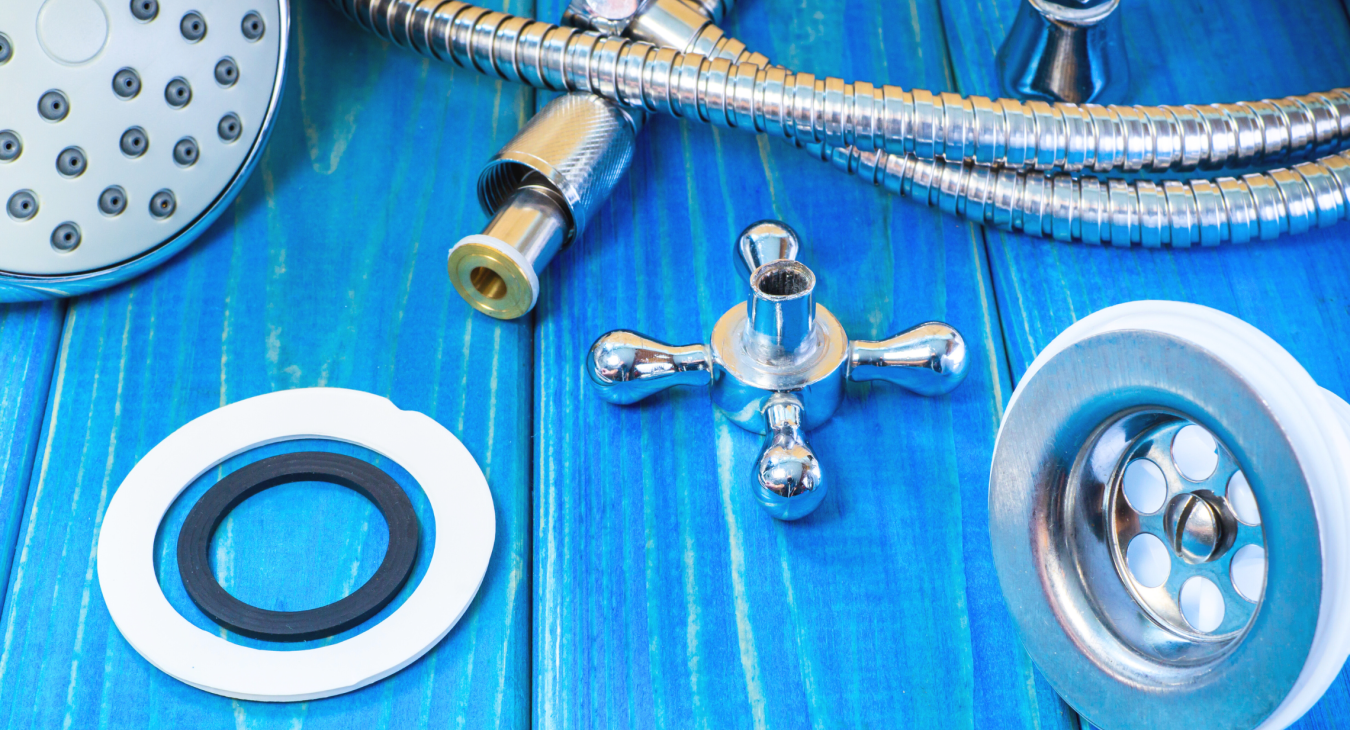
Are you a new homeowner or perhaps someone who's always relied on others to handle plumbing issues? Understanding your home's plumbing system is a crucial aspect of homeownership that can save you time, money and stress in the long run. In this beginner's guide, we'll delve into the basics of residential plumbing, empowering you to navigate common issues with confidence.
Introduction to the Plumbing System
Your home's plumbing system comprises a network of pipes, fixtures and appliances designed to supply clean water for consumption and various household activities while safely removing waste and wastewater. In the UK, most residential plumbing systems consist of two subsystems: the supply system and the drainage system.
The Supply System
The supply system delivers clean water from the mains to your taps, showers, toilets and appliances. Key components include:
- Mains Water Supply: the water enters your home through a mains connection typically located outside your property. It's crucial to know where your main shut-off valve is located, in case of emergencies such as leaks.
- Pipes and Fittings: various pipes, such as copper, plastic or PEX, distribute water throughout your home. Fittings like valves, connectors and joints ensure a secure and leak-free connection.
- Water Meter: some homes have water meters to measure usage for billing purposes. It's often located near the property boundary or inside the house.
- Water Heater: a water heater, commonly a boiler or immersion heater, heats water for domestic use.
The Drainage System
The drainage system removes wastewater and sewage from your home. It includes:
- Drain Pipes: these pipes transport wastewater from sinks, showers, baths, toilets and appliances to the main sewer line or a septic tank.
- Vent Pipes: vent pipes prevent airlocks and allow sewer gases to escape safely outside, maintaining proper drainage flow.
- Traps: found under sinks, baths and showers, traps retain water to prevent foul odours and gases from entering your home. Regularly check and clean these traps to prevent blockages.
- Sewer Line: the main sewer line connects your home's drainage system to the municipal sewer system or a septic tank. Ensure it's clear of obstructions to prevent backups.
Common Plumbing Issues and Troubleshooting Tips
Even with regular maintenance, plumbing issues can arise. Here are some common problems and how to address them:
- Leaky Taps: often caused by worn-out washers or seals. Replace these components to stop the leak.
- Clogged Drains: use a plunger or drain snake to clear minor clogs. Avoid chemical drain cleaners, as they can damage pipes.
- Low Water Pressure: check for leaks, sediment buildup in aerators, or issues with the pressure regulator. Adjustments or repairs may be necessary.
- Running Toilet: a running toilet wastes water and can indicate a faulty flapper valve or fill valve. Replace these parts to fix the issue.
- Frozen Pipes: in cold weather, pipes can freeze and burst. Insulate exposed pipes and prevent taps dripping during freezing temperatures.
Maintenance Tips for a Healthy Plumbing System
Preventive maintenance can prolong the life of your plumbing system and help you avoid costly repairs. Here are some tips:
- Regular Inspections: check for leaks, drips and signs of water damage under sinks, around toilets and near appliances. Address any issues promptly to prevent further damage.
- Drain Maintenance: use drain screens to prevent hair, soap scum and food debris from clogging drains. Regularly clean and maintain traps to avoid blockages.
- Water Heater Maintenance: flush your water heater annually to remove sediment buildup, which can affect its efficiency and lifespan.
- Insulation: insulate exposed pipes, especially in unheated areas like attics and basements, to prevent freezing during cold weather.
- Professional Inspections: schedule periodic inspections by a licensed plumber to identify and address potential problems before they escalate.
Understanding your home's plumbing system is essential for every homeowner. By familiarising yourself with its components and knowing how to troubleshoot common issues, you can maintain a functional and efficient plumbing system. With the knowledge gained from this guide, you're equipped to tackle basic plumbing tasks and keep your home's water flowing smoothly. Regular maintenance and timely repairs will not only save you money in the long run but also ensure the comfort and safety of your home.
Remember, if you encounter complex problems or are unsure how to proceed, don't hesitate to seek professional assistance from a licensed plumber.
For residents in the Dorchester area, Joe Newton offers high-quality and reliable plumbing services. Whether you need help with a leaky tap, clogged drain or any other plumbing issue, our friendly team can help! Contact us today to discuss your requirements and benefit from a free, no obligation consultation and quote.

